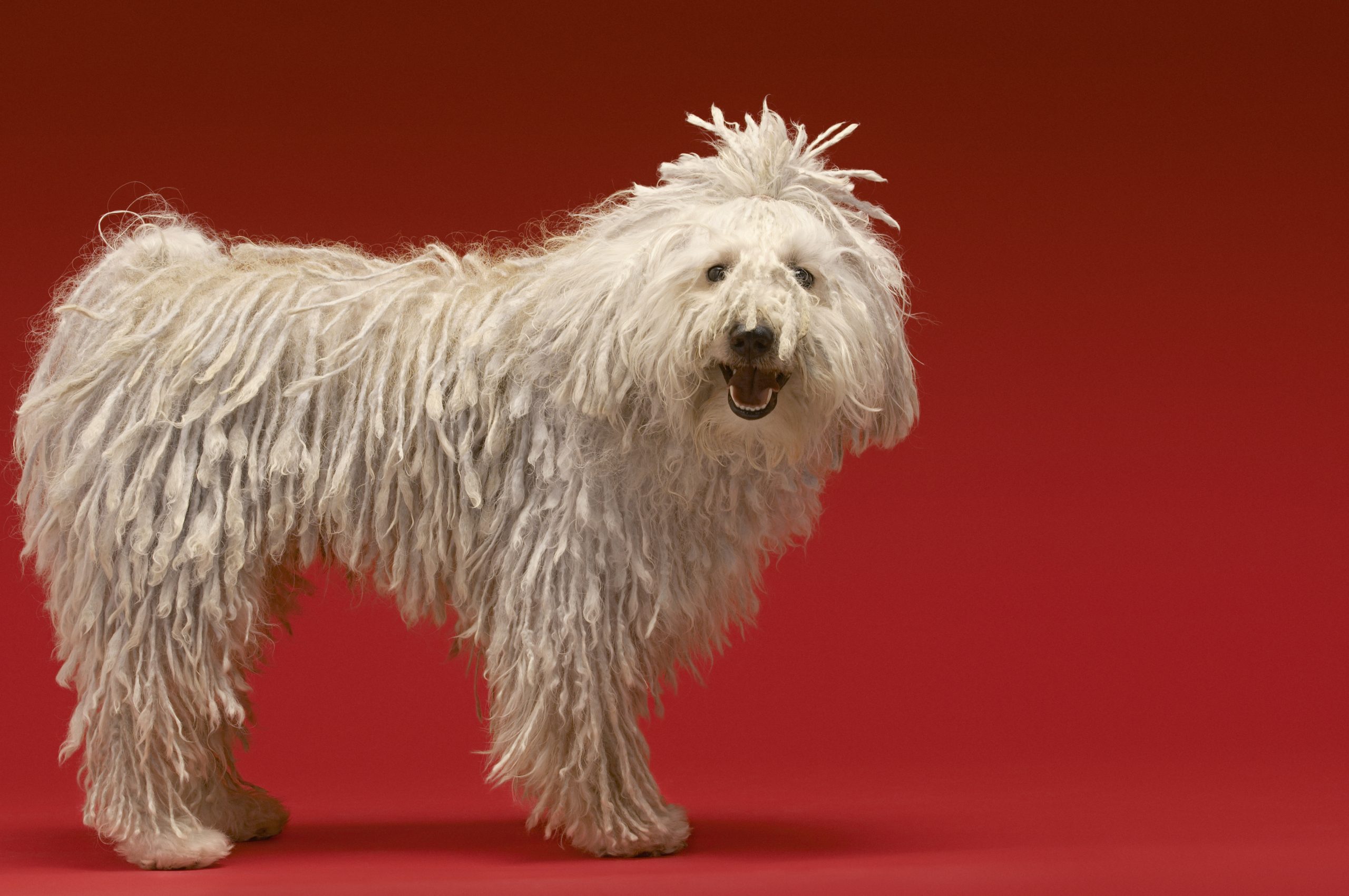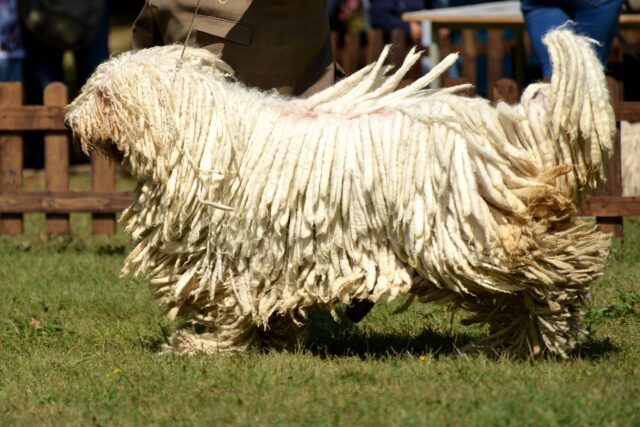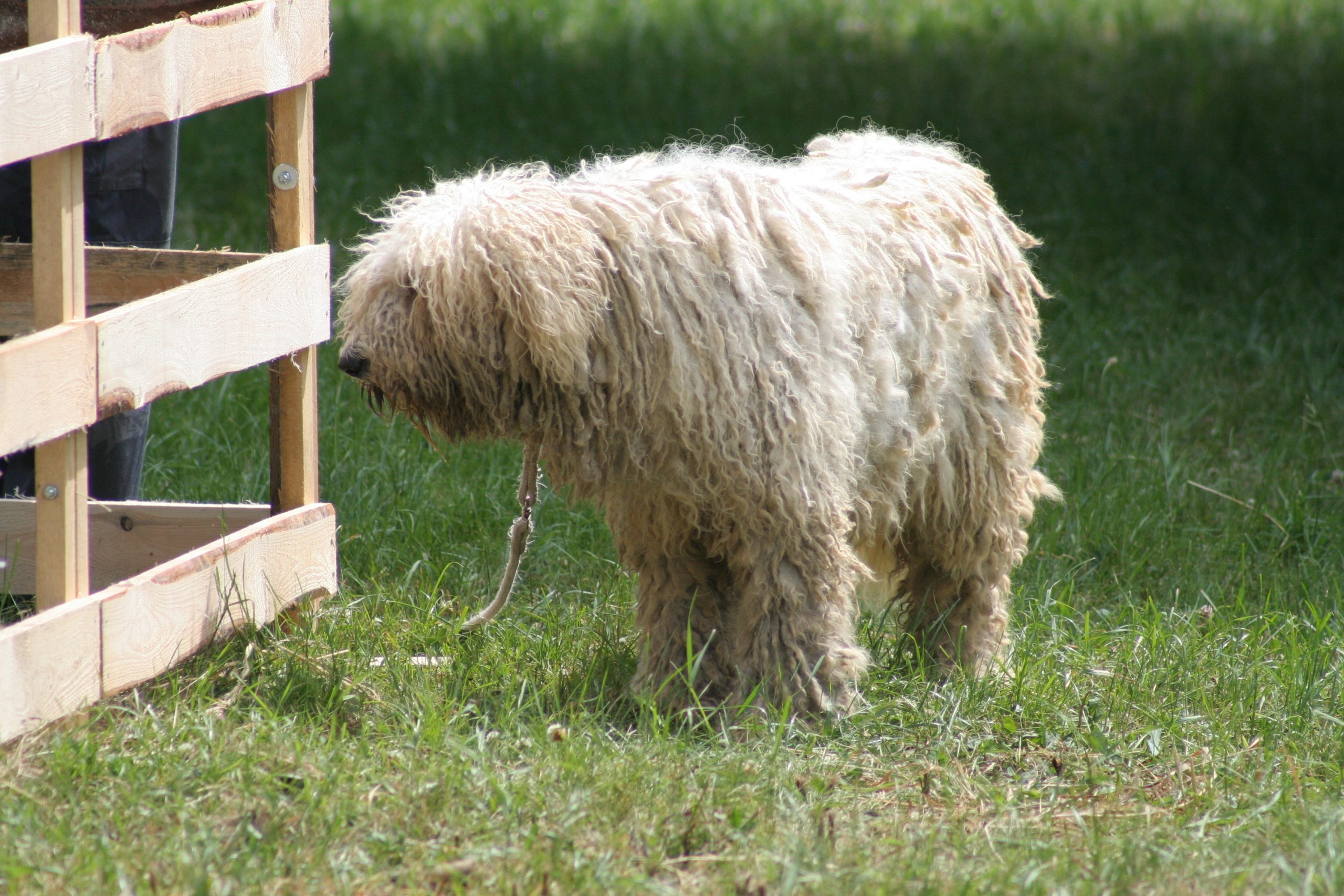Komondor
No products found which match your selection.
Shelter Dog Meal Donation Count:
No products found which match your selection.
The Komondor is a large, imposing breed known for its distinctive corded coat, resembling dreadlocks. Originating in Hungary for livestock protection, they are highly protective, loyal, and independent, requiring significant grooming and space to thrive.
The Komondor is primarily a guardian breed, traditionally used to protect livestock. Its natural protective instincts make it an excellent watchdog for both property and family.

Originating in Hungary, the Komondor’s ancestry is believed to date back to at least the 9th century. The breed was developed to guard large flocks of sheep and cattle against predators on the Hungarian plains.




Generally healthy but prone to hip dysplasia and gastric torsion (bloat). Regular vet check-ups are important.
The corded coat requires significant maintenance. The cords must be regularly separated and cleaned to prevent matting and odors. Grooming can be a time-consuming process.
Daily walks and playtime are sufficient. They do not require intensive exercise but do need regular activity to stay healthy.
Early and consistent training is vital. They can be independent and sometimes stubborn, so patience and consistency are key. Positive reinforcement works best.
A balanced diet suitable for large breeds with a moderate activity level is recommended. Regular meals, rather than free feeding, can help prevent bloat.
The Komondor is a majestic and devoted breed, ideal for those who appreciate its unique appearance and guardian nature. Due to their size, protective instincts, and grooming requirements, they are best suited for experienced dog owners with adequate space. With proper care, training, and socialization, the Komondor can be a loyal and impressive companion.
The Komondor, a large and robust breed, is generally healthy but can be predisposed to certain health conditions. Awareness and proactive health management are key to ensuring a long, healthy life for these dogs.
Komondors are relatively healthy, attention to these specific health concerns and regular veterinary care can help in maintaining their wellbeing throughout their life.
The iHeartDogs Free Rx Discount Card Program is a pet prescription discount card that can help you save money on your furry friend’s medications. The card is free to sign up for, and you can use it at participating pharmacies nationwide. To use the free program, simply show the card to your pharmacist when you pick up your pet’s prescription. The pharmacist will then scan the card, and you will receive a discount on the price of the medication.LEARN MORE
Caring for a Komondor involves several expenses, some of which are common to all dog breeds, while others are specific to large breeds or those with unique grooming requirements like the Komondor. Here’s a breakdown of the typical annual costs:
Total Estimated Annual Cost:
$2935 - $7270
It's important to note that these figures are estimates and can vary. Also, the first year of owning a dog can be more expensive due to one-time costs like spaying/neutering, initial vaccinations, and training. Regular budgeting for your dog's needs and an emergency fund for unforeseen costs are essential for responsible pet ownership.